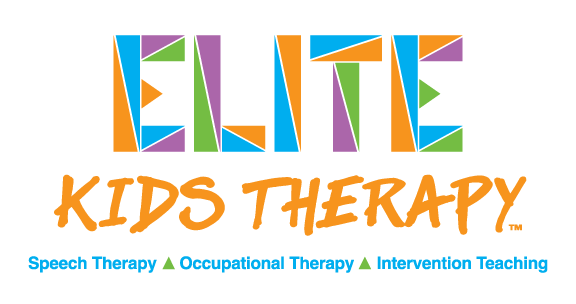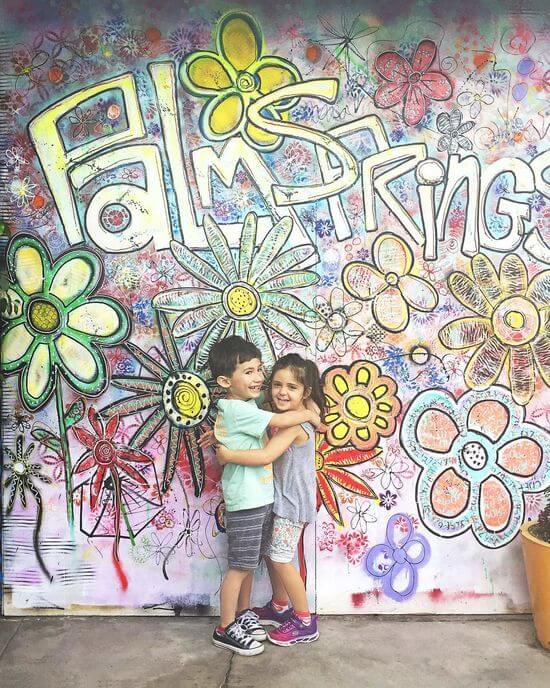4 Ways to Help Your Child Bond With Playmates Who Have Special Needs
It’s not about pity or charity. When a child finds common ground with a peer who has special needs, the payoff is powerful—for both kids.
There was a time when Benzi Goldman couldn’t land a single playdate. “Every time I’d try to make plans, people would make up an excuse or say they were too busy,” recalls his mother, Katie Smeltz, of Rockville, Maryland. “One mom actually told me there wasn’t anything her son could learn from mine.” Smeltz was crushed to see her son excluded, but that wasn’t the only issue that weighed on her. When Benzi was diagnosed with autism at age 3, doctors told her it was essential for him to continue to spend time with typically developing kids—but without cooperation from other parents, Smeltz didn’t know what to do. Then she met Cheryl Bregman and her 2-year-old son, Adam—and everything changed.
Benzi, now 12, and Adam, 11, attend different schools but still enjoy hanging out on weekends. Unlike some kids, Adam understands Benzi and has been able to connect with his friend when nobody else could. “When Benzi got an iPad, he became obsessed with using it and stopped playing with Adam,” Smeltz recalls. Adam knew what to do: Whenever Benzi zoned out in front of the glowing screen, he would transform into the “iPad Monster” and stomp over to Benzi, who would look up and laugh.
I wish I could say that genuine friendships like the one between Benzi and Adam are common, but as the mom of a child with autism myself, I know that’s not true. I can count on one hand the number of times another child has tried to get to know my 14-year-old son, Benjamin. And it’s impossible to quantify how often children have gaped at his unusual behavior or—just as heartbreaking—haven’t noticed him at all.
I understand their reluctance. Benjamin’s hand-flapping and loud noises can be jarring, and it’s not easy to figure out how to interact with someone who remains silent when you ask him a question. Still, I know that if his peers could get past these roadblocks, they would see the best chocolate-chip cookie-stick baker on the planet and a guy who can sing the lyrics to every song on the Hamilton soundtrack.
A friendship with Benjamin or another child with special needs may not seem like your kid’s other relationships, but that’s actually a benefit. “If a child can look at another child with challenges and think, ‘How can I get to know him better?’ it shows a high level of social maturity that could translate into success in all his personal relationships, in school, and ultimately in his career,” says Parents advisor Rebecca Landa, Ph.D., director of the Center for Autism & Related Disorders at the Kennedy Krieger Institute, in Baltimore.
Being inclusive doesn’t always come naturally to kids, who often need guidance to get a friendship off the ground. Experts share some ways you can help.
Talk About Differences
When you have a child with special needs, one of the first things you notice is that people are constantly staring at your kid. Sometimes his behavior draws the looks and other times—as is the case for Yael Mizrachi’s 9-year-old son, Noah, who has a form of dwarfism—it’s the physical differences. “People stare a lot when we go out,” says Mizrachi, from Hallandale, Florida. “It’s normal to look. We all do when we see someone who’s different, but it’s not normal to stare.” Your instinct may be simply to tell your child to avert her gaze to avoid hurting the other kid’s feelings, but this kind of response closes the door to interaction and sets an unfortunate precedent. Plus it doesn’t address what Mizrachi says is the real reason children gawk: They have questions.
The next time your child can’t take her eyes off someone, try to quietly acknowledge the surprising behavior or appearance right away, and find a way to connect it to your kid. For instance, if a child with autism is jumping up and down from excitement or anxiety, you can say, “It’s a lot like how you twirl your hair when you’re feeling nervous.” If your son is intrigued by a kid with leg braces who is climbing up the stairs, you can liken the situation to when your child first learned to ride a bike and needed training wheels: “Remember how you found that challenging? It’s similar to why walking is hard for this boy and he needs help.”
When you demystify differences, you set the stage for understanding and empathy. This conversation is also a perfect way to segue into asking your child a very important question: “Wouldn’t you like to get to know that boy better?”
Approach the Parents
If you’re not sure of the best way for you or your child to get to know a kid with special needs, ask his mom or dad for some tips. As a mom of a child with special needs, I have had loads of practice kick-starting dialogue between my son and his younger cousins and our family friends. Though the conversation might be uncomfortable, think about it this way: The awkwardness you feel is nothing compared with the sidelong glances differently abled children receive on a daily basis. If it makes you feel more at ease, you could approach your child’s teacher first to find out if the other parents are interested in chatting.
Samantha Chipetz wishes more parents would ask why her 5-year-old son, Brandon, who has Prader-Willi syndrome, is often sprawled out on the asphalt at the playground. (The answer: His genetic disorder can leave him exhausted after only a few minutes of activity.) Mizrachi doesn’t even wait to be asked about Noah. At the beginning of every school year she tells the parents of his classmates that she’s happy to answer any questions about his dwarfism. Each year she finds that sharing the information changes his classmates’ perspective. She will never forget the time the other students refused to plop down on the floor for a story just because Noah wasn’t able to sit comfortably that way.
Emphasize Their Similarities
 Brandon Chorney (left) who has Prader-Willi syndrome, hugging best friend Juliana Fusetti (right)
Brandon Chorney (left) who has Prader-Willi syndrome, hugging best friend Juliana Fusetti (right)Before a playdate with a differently abled child, talk to your kid about the things they both love to do. “People develop friendships because of common experiences and interests,” says Jed Baker, Ph.D., director of the Social Skills Training Project, in Springfield, New Jersey. You can get your child excited by describing his new friend’s epic Lego collection or mentioning her encyclopedic knowledge of dinosaurs. And remember that shared interests don’t need to be skill-based. Brandon Chorney and his 5-year-old best friend, Juliana, love to watch Beauty and the Beast and hang out at the beach. “They don’t play together in the sand, because Brandon gets tired or distracted—but they’ll hold hands as they run to the water, which is so sweet,” says his mom.
Remind Your Child He’s a Pal—Not a Hero
A boy on our block used to come over weekly to play board games and basketball with Benjamin. When I mentioned how glad I was that the playdates were going well, the boy’s mom told me how important it was that her kids do community service. My heart sank. While I appreciated her 9-year old’s kindness, I was hoping that the boys’ relationship was about more than charity work.
 Sasha Brodtman (right) who has Down syndrome, walking with best friend Zoe Leitner (left)
Sasha Brodtman (right) who has Down syndrome, walking with best friend Zoe Leitner (left)To help your child forge authentic friendships with a diverse set of peers, praise her sincerity and ability to value individuality. “Help your child become aware of her ability to appreciate the human being within the special needs body,” says Dr. Landa. Talk about what makes other kids potential buddies—their favorite song or sense of humor—and then step back and let the kids get to know one another That’s the formula that has worked best for Sasha Brodtman, a 15-year-old with Down syndrome in Wellington, Florida, whose strongest relationships started at sleepaway camp. The staff members encourage camaraderie, but it’s the sheer fun of sharing in activities—from playing sports to making crafts to sleeping in the same bunk—that has led to friendships with typically developing kids.
Back at home, Sasha often forgets to charge her phone, but whenever she plugs it in, she’s thrilled to hear it ding like crazy with texts from camp pals. “Their parents aren’t saying, ‘Remember that special-needs kid? Want to call her?’ ” says Sasha’s mom, Toby Brodtman. “These kids keep in touch because they want to.”
*Cincinnati Therapy Connections provides in home speech therapy and occupational therapy in your Cincinnati area home, daycare or academic setting! We provide quality children’s therapy by experienced therapists who have 10+ years of experience and multiple licenses to give you the highest quality speech and occupational therapists! We are Jon Peterson and Autism scholarship provider as well. Contact us for more information: [email protected]


